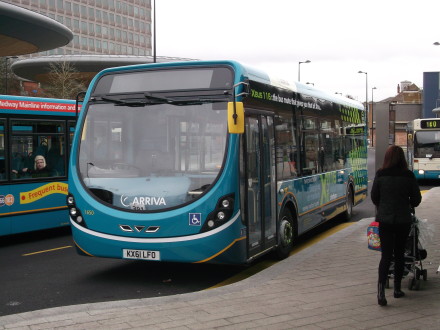
A half-hour drive from Oxford, on the edge of the Cotswolds lies the town of Witney, the heart of David Cameron’s parliamentary constituency. While Range Rovers and chocolate box cottages might spring to mind, life for many of its residents is far from straightforward.
One in three children in Witney Central ward, the centre of the constituency, live in poverty. Being in the Prime Minister’s constituency hasn’t protected the 375 local families affected by the bedroom tax. Nor is it hard to forget the local MP’s visit to the local food bank during last year’s General Election, where he reportedly turned up empty-handed.
And for those in Witney that don’t live in one of its £2m houses, life is about to get tougher.
In June, Stagecoach, which runs the local bus services, comes out of contract, leaving the future of the area’s local transport in doubt. Faced with huge cuts in funding from Oxfordshire County council, the privatised bus operator says it’s simply no longer economical to run rural routes such as the 215, which runs a regular circuit around the town and surrounding area.
After the previous operator tried – and failed – to run the service on a commercial basis, it seems likely that when Stagecoach pulls out, that will be the end of it.
For many of Witney’s residents who rely on the service, that would be a disaster. At a meeting on a local estate organised by local Labour & Co-operative councillor Laura Price, residents told the Shadow Transport Secretary Lilian Greenwood of the importance of local bus services to their lives.
Whether getting to the shops or to the day centre for weekly tea dances, each in turn made it clear how crucial the services were to maintaining their independence. “We use it to see our friends. The bus drivers are our friends – I don’t know what I shall do without it”, one elderly lady told us.
Another explained how as a carer to his disabled grandchild, he and his wife would struggle to take her out. Many fondly remembered a local man who had been a regular passenger on the service well into his late 90s, who would help fellow riders off the bus, many of them several decades younger than himself.
In places like Witney, geographically isolated and socially mixed, buses are more than an amenity or a form of transport. They’re the glue that holds the community together.
And that’s why, led by the District’s four Labour & Co-operative councillors (out of a total of 49) and County councillors, local people are determined to fight back and save the bus service for the community. They’re developing proposals for a new kind of bus service in Witney, run for people rather than profit. Under their plans, a co-operative would be created to run the services on a not-for-profit basis.
The co-op would be owned by its passengers, as well as by local businesses and others who value the role the local bus services play in the community and local economy. One such business is the Phone Co-op, which is based in the town and which has lent its support to the scheme.
The campaigners in Witney are drawing on the example of community transport operators including HCT Group, which itself runs routes all over the country, and which last year turned over almost £28.1m.
They’re also taking inspiration from the Co-operative Party’s #PeoplesBus campaign, which is drawing attention to the part that not-for-profit operators can play, and working to influence the government’s upcoming Buses Bill to give community transport the support it needs to expand further.
At the moment there’s reason to be optimistic. A recent meeting held to discuss the plans attracted a significant turnout. Councillors are confident of securing a share of the £9m in transition funding that Oxfordshire County council has received to help it deal with the impact of cuts, as well as working with Stagecoach to reach a deal on the use of vehicles and infrastructure.
But for Witney’s bus users, time is running out. Through the People’s Bus and our other campaigns, we’ll be working with local Labour & Co-operative councillors to help them succeed.
As central government cuts leave people isolated and powerless, we’ll be working to bring together the know-how of the wider co-operative movement and the experience of local people. Working with them, we can ensure that, with or without the Prime Minister’s support, people in places like Witney have the tools they need to take back control over their lives and to keep their community together.




More from LabourList
Antonia Romeo appointed to lead civil service as new Cabinet Secretary
‘If Labour is serious about upskilling Britain, it must mobilise local businesses’
Stella Tsantekidou column: ‘What are we to make of the Labour Together scandal?’